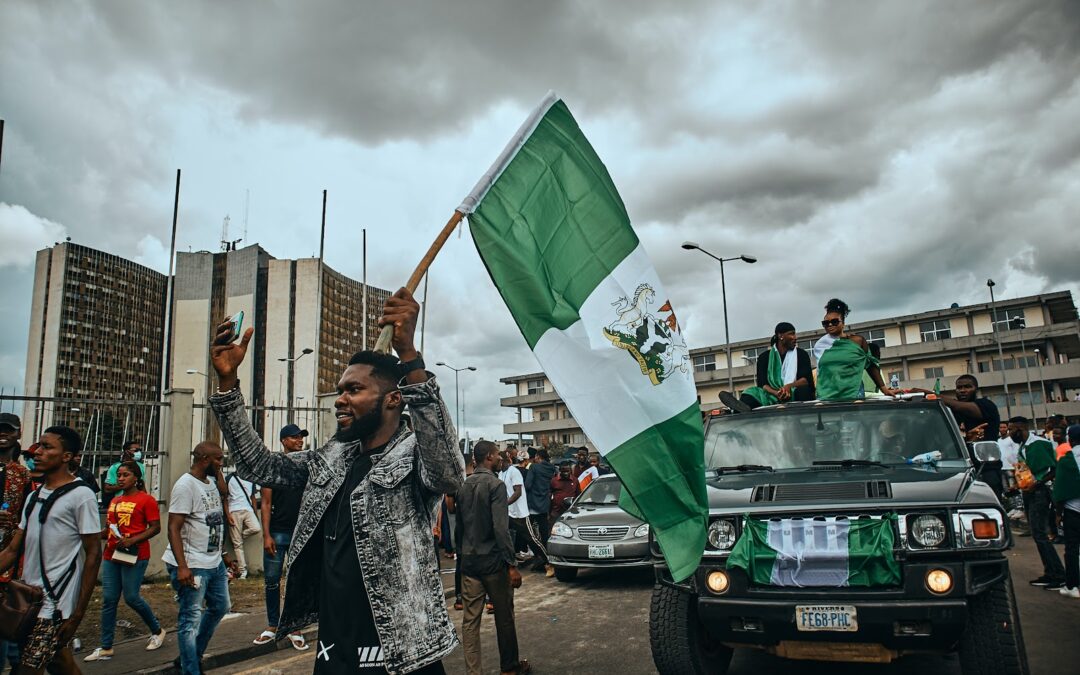Photo by Emmanuel Ikuegbu on Retna
Democracy stands out from other forms of government for, among other things, the level of freedom it affords the people. It was for this reason, among many others, adopted as the system practised in Nigeria. This freedom is exercised most notably when, through the medium of elections, citizens get to choose their representatives in government. A corollary of this freedom to choose their representatives is that they have the responsibility to hold them accountable to do all they have promised to do and to “punish” them if necessary for breaking that trust. This is why former British Prime Minister, Benjamin Disraeli, wrote that “… all power is a trust; that we are accountable for its exercise; that from the people and for the people all springs, and all must exist.”
This responsibility to hold public officials accountable extends to the highest office in the land – that of the president – to the more lowly positions. The importance of accountability in governance cannot be overstated, and its benefits include: accountability is a means of ensuring checks and balances on the activities of the government to ensure they do not overstep their powers and become authoritarian, it also prevents corruption, abuse of power, maladministration and so on.
This responsibility is carried out in many different ways, and that would be the focus of this article. It is important to note that accountability in this context can take three main forms, vertical, horizontal and diagonal accountability.
Vertical Accountability
This refers to the most common and easily accessible form of accountability to the average Nigerian. It involves the exercise of their franchise in free, fair, transparent and credible elections. However, research by Afrobarometer shows that a majority of Nigerians do not believe that elections properly reflect the will of the people and are not effective in removing leaders the people don’t want.
Perceptions like these are responsible for the high level of political apathy that has led to a consistent decline in voter turnout in the country, a trend that saw the last elections have the lowest turnout since 1999. With attitudes such as these, it raises questions as to the effectiveness of this method in holding leaders accountable.
Horizontal Accountability
This refers to the ability of government institutions to act as a check on the actions of other branches to prevent them from abusing their powers. This system of checks and balances is illustrated when the various arms of government check the activities of the others. For instance, the legislature exercises oversight by summoning members of the executive to account for their actions, confirm the appointment of ministers, and evaluate bills proposed by the executive.
Or the Judiciary in interpreting the laws passed by the legislature and holding the executive accountable by determining if their actions are lawful.
Diagonal Accountability
This refers to the role of civil society in holding the government accountable. Their work is referred to as diagonal accountability because they can play vital roles in both vertical and horizontal accountability. They do this by educating citizens, exposing government wrongdoing, and contributing to government policy. Ensuring the establishment of an empowered, participatory and generally more capable citizenry.
How can citizens hold their leaders accountable?
Considering the three main types of accountability that we’ve seen above, some practical ways available to citizens of holding their leaders accountable include:
- Elections
Elections refer to the means through which people choose those who will govern them. Elections serve as a tool to hold government accountable because the electorate can always choose to vote out individuals they feel are not performing optimally. Sections 132(5),178(5), and 77(2) of the 1999 constitution empower Nigerians to vote to elect their President, Governors and Legislators respectively.
- Impeachment
This refers to the process by which a government official is charged with abuse of power or gross misconduct. This process is usually initiated by the legislative arm and where the official is found guilty will be asked to vacate the office. The process of impeaching a president is outlined in section 143 of the 1999 constitution, but not only the president can be impeached, governors as well as the Vice President and Deputy Governors. In this video, Learn Politics explains how the impeachment process works.
- Recall
This refers to the process by which voters can remove an elected official from office before the official’s term comes to an end. This is a very potent way of holding accountable members of the House of Assembly (both national and state) who constituents deem to not be representing their interests. The procedure for the recall of a member of the House of Assembly is contained in section 110 of the 1999 constitution. The process is undoubtedly arduous as witnessed in the 2017 attempt to recall Senator Dino Melaye then representing Kogi West senatorial district. This Carousel provides more information on the process.
- Communicate with your representatives
A very important feature of democracy is the ease of access to your representatives in the legislature. If you want to share an opinion with them you can find their contact information here.
- Protest
In a democracy, holding a protest or rally is a recognised way of airing grievances or showing displeasure at a certain state of affairs in the country. Furthermore, this right enjoys constitutional protection under section 40 of the constitution which guarantees the right to peaceful assembly and association. These rights may be restricted in the interest of defence, public safety, public order, public health or morality. Contrary to popular notions that under section 1 of the 1979 Public Order Act notification is required before one carries out a protest, the court of appeal has quashed such provisions and now notification is no longer required unless the organisers require police protection, this is as held in All Nigeria’s People’s Party v Inspector General of Police.
Such protests must, of course, be peaceful and not lead to rioting.
In Conclusion
Successful democracies are only so because of the presence of an active and engaged citizenry that constantly challenges and demands accountability from its elected representatives. Without citizens doing the hard work of holding the government accountable, our democracy becomes at risk.
In this article, we’ve explored some avenues available to the people to demand good governance from their leaders. Both as individuals and through the vehicles of government institutions as well as through the efforts of civil society organisations like Learn Politics making political education accessible to people, to others that act as watchdogs ensuring compliance from the government with civic tech tools like Civic Hive. This is to the end that more politically active citizens are equipped with the means and knowledge to hold their leaders accountable.

